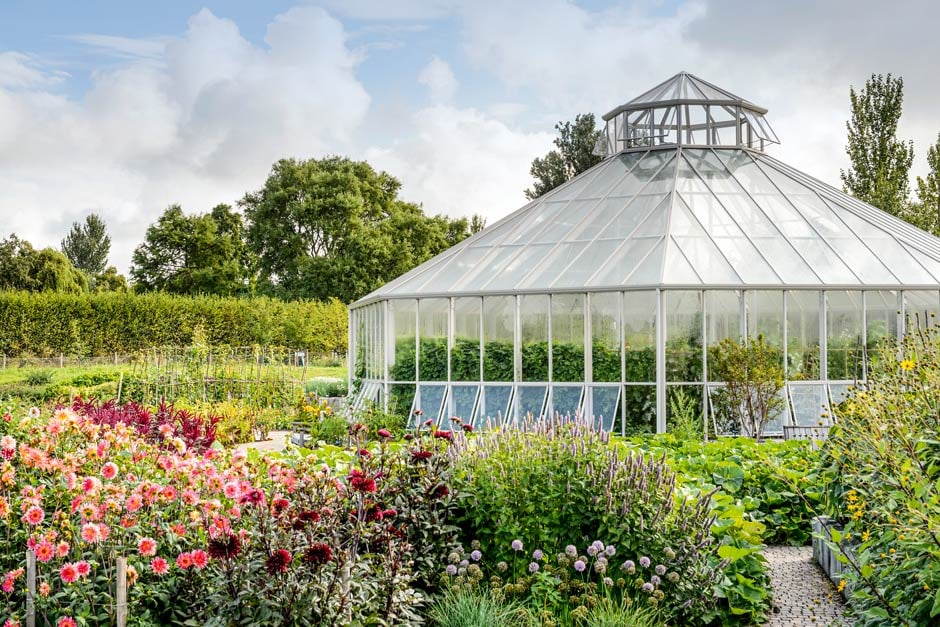Bored with broccoli? Tired of tomatoes? Why not take a cue from RHS Hyde Hall's Global Growth Vegetable Garden, and grow some edibles with a difference....
 The Global Growth Vegetable Garden at RHS Garden Hyde Hall in Essex is home to a cornucopia of fruit and vegetables from the four corners of the earth – from Europe and the Middle East, Asia, North and Central America, and South America.
The Global Growth Vegetable Garden at RHS Garden Hyde Hall in Essex is home to a cornucopia of fruit and vegetables from the four corners of the earth – from Europe and the Middle East, Asia, North and Central America, and South America.
It will challenge your perceptions of the conventional allotment with its range of everyday, exotic, and edible ornamental vegetables from across the globe.
Why not brighten up your veg plot, and your plate, with our top 10 unusual edibles from the garden.

1. Tiger nuts (Cyperus esculentus)
Edible tubers produced on the roots of a sedge like plant. Sweet and nutty flavour.

2. Flower sprouts (Brassica oleracea)
This British-bred hybrid of Brussels sprouts and kale produces open, flower-like sprouts (leaves) on a straight stem.

3. Dahlias (Dahlia sp.)
All tubers of your standard garden dahlias, grown for flowers, are edible. Roast, mash, slice finely for chips, use in desserts and cakes....the opportunities are endless!
 4. Wonderberry (Solanum x burbankii)
4. Wonderberry (Solanum x burbankii)
Exceptionally easy to grow, produces a small black berry that is excellent for use in pies, puddings and jams.
Image: courtesy jungleseeds.co.uk
 5. Yardlong bean (Vigna unguiculata subsp. sesquipedalis)
5. Yardlong bean (Vigna unguiculata subsp. sesquipedalis)
Grows like a climbing bean, but Asian in origin so it likes a hot, sunny part of the garden.
Produces extraordinarily long beans that can reach 1m long!

6. Daylily (Hemerocallis lilioasphodelus)
Did you know the flowers on your garden daylilies were edible? All of them are perfectly safe so why not give them a try?
They have a sweet, crisp texture that is excellent in salads. Shake the pollen beetles out first though…
 7. Rat tail radish (Raphanus caudatus)
7. Rat tail radish (Raphanus caudatus)
Rather than the root, you eat the seed pod produced after flowering, giving this radish a much longer garden life.

8. Achoccha (Cyclanthera pedata)
A fast growing South American climber, also known as 'fat babies' or 'stuffing cucumber'. Produces large green pointed fruits that can be stuffed with the filling of your choice and then cooked.

9. Oca (Oxalis tuberosa)
Also known as New Zealand yam, but confusingly, it isn't from New Zealand! Small plants produce edible tubers late in the year, so may need protecting from early frosts. Steam whole.

10.Cape gooseberry (Physalis peruviana)
Much like the ornamental Chinese lantern plant, this produces sticky orange berries inside a papery husk. Can be eaten raw or cooked in sweet dishes like jams.

